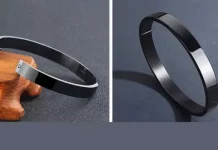You’ve always been a little self-conscious of your teeth. Your dentist can make corrections and give you the boost of confidence you need to smile a little more. How may you ask?
The answer is veneers. Not only can this dental treatment improve the appearance of your teeth, but it can also provide a protective coating that will prevent enamel loss. Some people get them to reduce their sensitivity to cold and hot foods.
What’s not to love?
Before you sit in the dental chair, it’s a good idea to familiarize yourself with the different types of veneers. Check out this guide to get started with your research.
Porcelain
First up on our list of dental veneer options is porcelain. Installing these veneers is one of the most common services this dentist offers because the material is so popular.
The dentist will take a mold of your teeth and discuss your color options. Once they have the information they need, they’ll send the data off to a lab where your veneers will be created.
On top of their customizability, they can resist stains. Porcelain veneers are difficult to damage, but they’re not immune to it. Once they chip, it will be difficult to fix them.
Composite
If you’re looking for something a bit cheaper that can last almost as long as porcelain veneers, composite is the way to go. They’re not quite as sturdy as their porcelain counterpart, but they will last for up to 7 years without showing any signs of problems.
Getting them is also convenient. They use the same material that your dentist uses to fill in a patient’s cavity. That means your physician can put in your veneers the same day you make your appointment.
If your composite veneers break on you, your dentist can fix them up within a single visit as well. The only downside is that these veneers are more prone to discoloration than porcelain ones.
Lumineers
Lumineers are the best veneers when it comes to mimicking the look and feel of your natural teeth. They’re made out of porcelain but are much thinner than traditional veneers.
The thinner material means your dentist won’t have to go through as much prep work to put them in. There’s no reshaping involved.
There is a problem with using such a thin material. It chips a lot easier than regular veneers. Any tooth discoloration you have going on will show right through them too.
The Different Types of Veneers to Familiarize Yourself With
Getting fitted with veneers can improve the appearance of your teeth and give you a boost of confidence. They also act as a protective coating for your enamel.
As you can see, there are quite a few types of veneers to choose from. Talk to your dentist today to decide on the right ones for your smile.
For more tips that will help you take care of your pearly whites, visit the Health & Fitness section of our blog.























